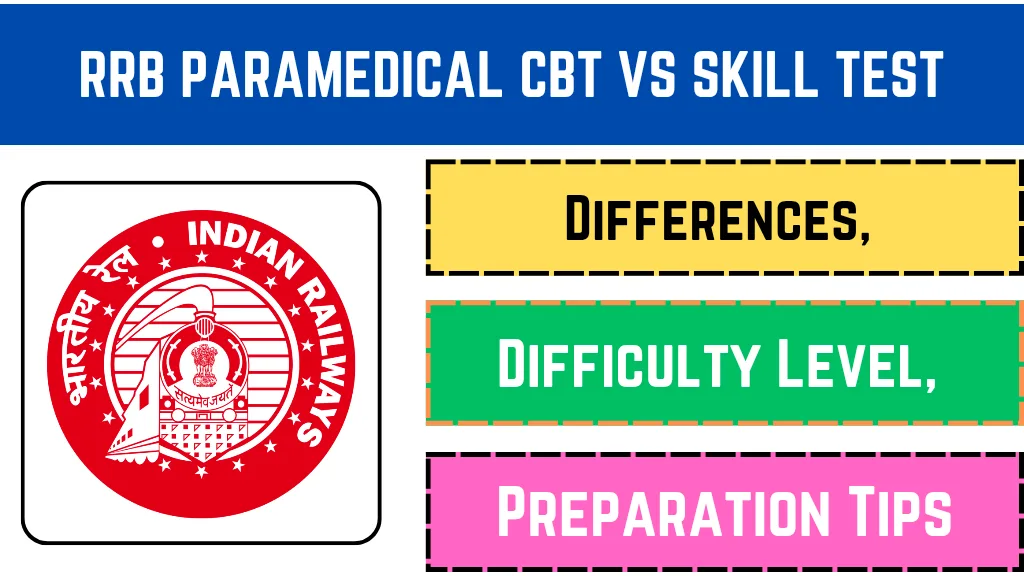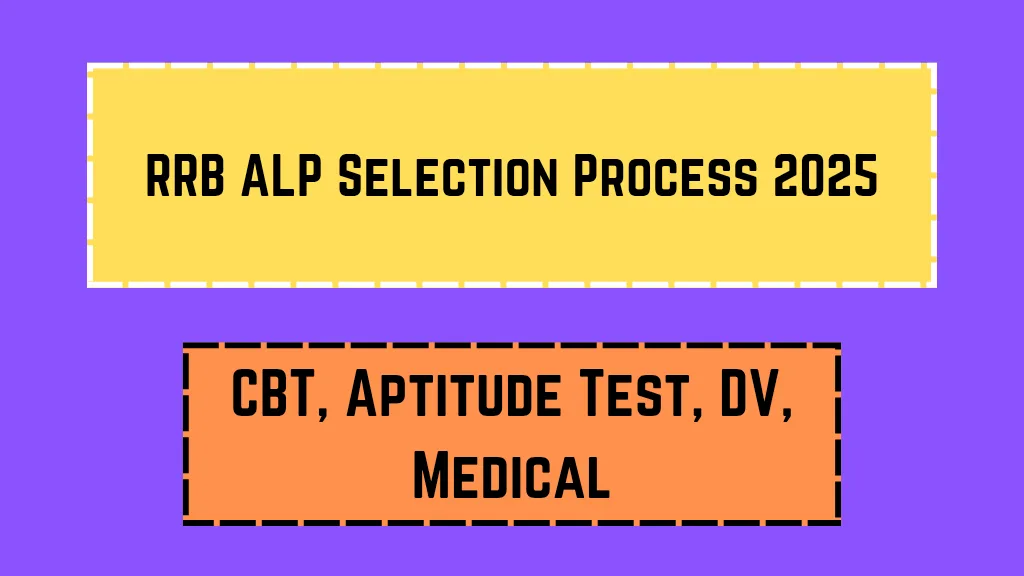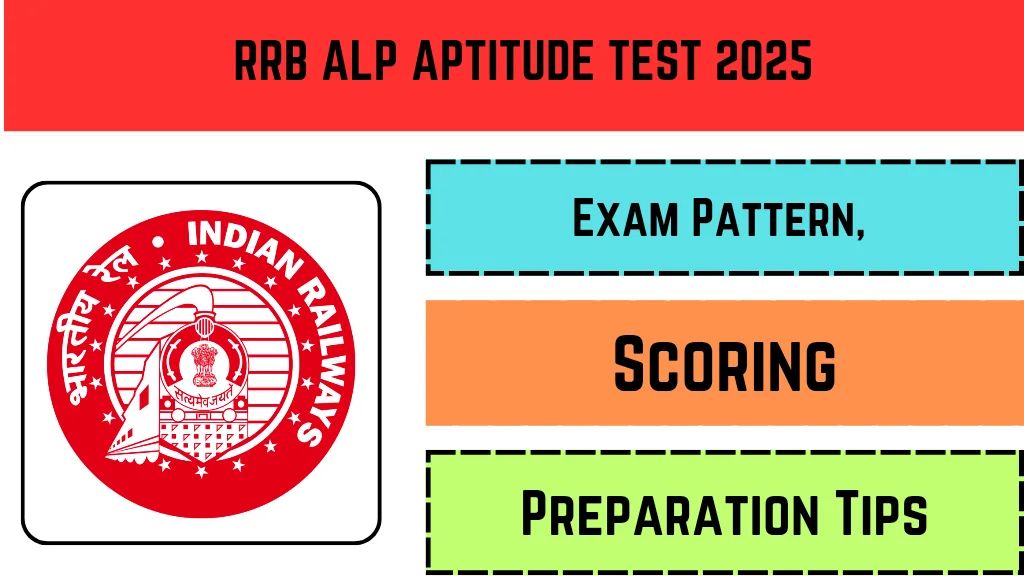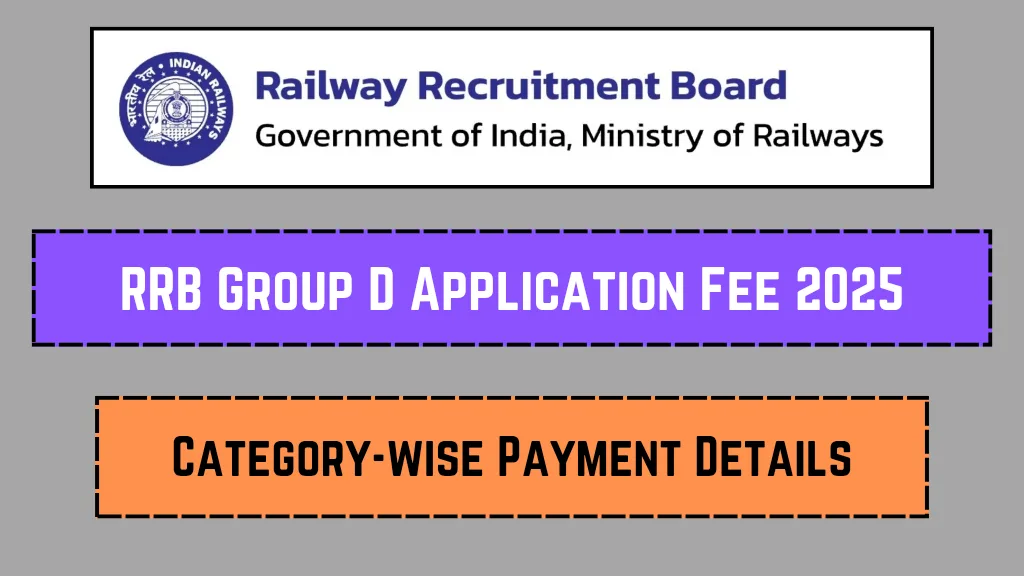The Railway Recruitment Board (RRB) plays a vital role in hiring paramedical staff to ensure the health and safety of millions of rail passengers. With competitive exams like the Computer-Based Test (CBT) and Skill Test, candidates often feel overwhelmed. This article breaks down the differences between these exams, their difficulty levels, and actionable preparation tips. Whether you’re aiming for nursing, lab technician, or radiography roles, this guide simplifies everything you need to know!
Key Highlights 📌
| Aspect | Details |
|---|---|
| Organization Name | Railway Recruitment Board (RRB) |
| Exam Types | CBT (Stage 1) and Skill Test (Stage 2) |
| Purpose | Recruitment for paramedical roles like nurses, lab technicians, pharmacists |
| CBT Subjects | General Awareness, Arithmetic, Reasoning, Professional Knowledge |
| Skill Test Format | Practical assessment of job-specific skills (e.g., dressing wounds, lab tests) |
| Difficulty Level | CBT: Moderate |
| Total Vacancies | 1,000+ (varies yearly) |
| Last Date to Apply | Check RRB official website for updates 🗓 |
| Official Website | www.rrbcdg.gov.in |
Understanding RRB Paramedical Recruitment 🏥
The RRB paramedical recruitment process has two stages: CBT and Skill Test. While CBT tests theoretical knowledge, the Skill Test evaluates practical abilities. Let’s explore both stages in detail.
What is the CBT Exam? 💻
The Computer-Based Test is the first elimination round. It includes four sections:
- General Awareness (current affairs, railways).
- Arithmetic (basic math, percentages).
- Reasoning (logical puzzles, analogies).
- Professional Knowledge (domain-specific questions).
Candidates need 40% marks (30% for reserved categories) to qualify.
What is the Skill Test? 🩺
Qualified CBT candidates face the Skill Test, a hands-on assessment. For example:
- Nurses might demonstrate wound care.
- Lab technicians could perform blood tests.
This stage ensures you’re job-ready and aligns with railway safety standards.
CBT vs Skill Test: Key Differences 📊
| Parameter | CBT | Skill Test |
|---|---|---|
| Format | Online multiple-choice questions | Practical tasks |
| Focus Area | Theoretical knowledge | Technical skills and speed |
| Duration | 90 minutes | 20–30 minutes per candidate |
| Syllabus | Fixed (math, reasoning, GK) | Role-specific tasks |
| Qualifying Marks | 40% (General) / 30% (Reserved) | Pass/Fail based on accuracy |
Difficulty Level Analysis 📉
Both exams have unique challenges:
CBT Difficulty
- Moderate difficulty: Focuses on time management.
- Professional Knowledge is the toughest section (requires detailed study).
- Previous year’s cut-off: 72–80 marks (out of 100).
Skill Test Difficulty
- High difficulty: Pressure to perform tasks quickly.
- Mistakes like incorrect measurements lead to disqualification.
- Practice with real tools (e.g., stethoscopes, lab equipment) is essential.
Preparation Tips for CBT 🧠
- Master Professional Knowledge: Study NCERT/paramedical textbooks.
- Solve Mock Tests: Use apps like Gradeup for timed practice.
- Focus on Weak Areas: Improve arithmetic or reasoning with YouTube tutorials.
Recommended Resources
- Books: Arihant’s RRB Paramedical Guide.
- Websites: RRB’s official portal for updates.
Preparation Tips for Skill Test 🛠️
- Practice Daily: Simulate tasks like bandaging or microscopy.
- Join Workshops: Hospitals or NGOs offer hands-on training.
- Stay Calm: Speed matters, but accuracy is critical.
Important Dates to Remember 🗓️
- Notification Release: Check RRB regional websites in October 2024.
- CBT Admit Card: Released 15 days before the exam.
- Skill Test Dates: Usually 1–2 months after CBT results.
Common Mistakes to Avoid ❌
- Ignoring Professional Knowledge: This section decides your rank.
- Underestimating Skill Test: Practice with real equipment.
- Missing Updates: Refresh the RRB website weekly for deadlines.
Role of Paramedical Staff in Indian Railways 🚂
From emergency care to routine health checks, paramedics ensure passenger well-being. Key responsibilities include:
- Providing first aid during accidents.
- Managing onboard medical kits.
- Coordinating with hospitals for critical cases.
This role demands quick thinking and compassion – skills tested in both exam stages!
By understanding the differences, difficulty levels, and preparation strategies, you’re one step closer to acing RRB’s paramedical exams. Stay consistent, practice regularly, and keep an eye on official updates! 🌟














